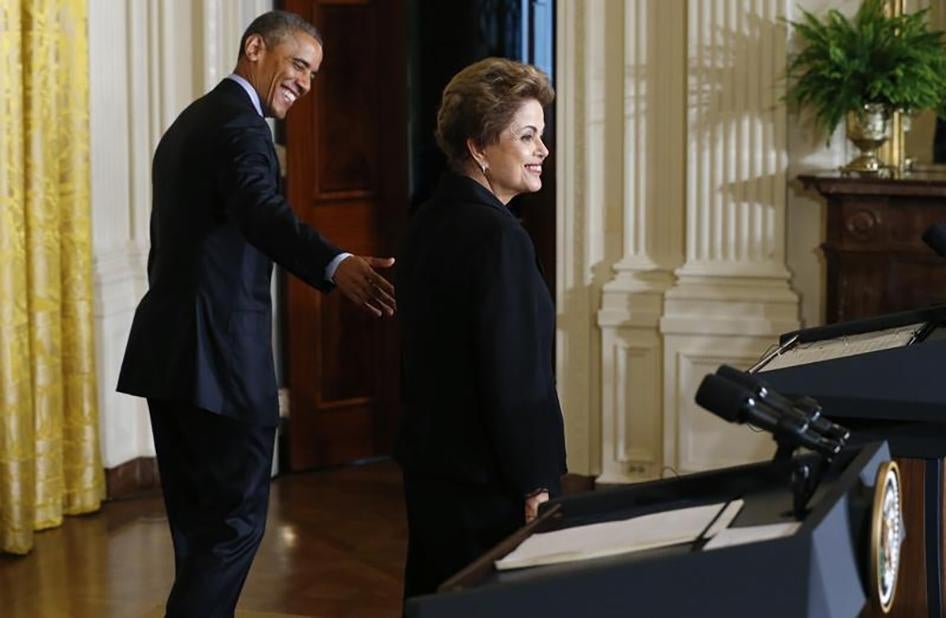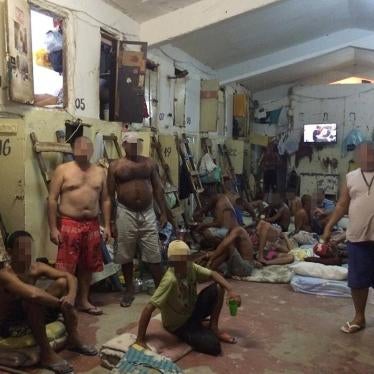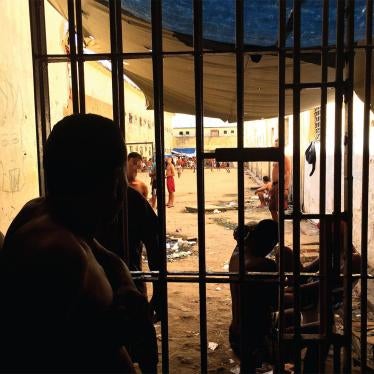The United States is providing early release this weekend for 6,000 inmates who have been serving federal sentences for non-violent drug crimes -- the biggest one-time release of inmates in US history. It's a sign of a tectonic shift occurring in the United States, which keeps more people locked up than any other county. US politicians from both parties and even police chiefs have come to agree that mass incarceration does not enhance public safety.
It’s a move Brazil should examine closely.
Brazil holds the dubious distinction of incarcerating the world’s fourth-biggest prison population. While the number of people behind bars has gone down in the top three countries since 2008, Brazil is heading in the opposite direction. Its prison population has multiplied almost sevenfold in a quarter of a century, to more than 600,000 inmates, who are held in facilities with a total capacity of 377,000.
Such explosive growth has brought the prison system to the brink of collapse, turning facilities into cauldrons of violence, disease, and corruption, and staining Brazil’s human rights record as such a situation inevitably entails multiple rights violations.
Like politicians in Brazil today, many US politicians, argued for decades for harsher punishments as the solution to crime. But US studies going back to 1958 demonstrated clearly that locking up low-risk offenders with convicts who were serving long sentences was like sending the newcomers to school to become hardened criminals. Their post-release options dwindled, recidivism soared, and the cycle became hard to break.
The release of the 6,000 inmates follows a rethinking of sentencing by a high-level commission that made the changes last year and said they could be applied retroactively. Many more of the 100,000 non-violent drug offenders languishing in US federal prisons could be released early in the next few years.
There is a lot yet to be done to construct a more just and effective justice system in the United States, where significant forces continue to oppose change.
Still, by honestly examining decades of harshly punitive -- sometimes politically motivated -- criminal-justice policies, the US is poised to save millions of dollars, improve justice, and return tens of thousands of citizens to society--with no anticipated damage to public safety. The states of New Jersey, California and New York have already reduced their prison populations by about a quarter in recent years, with no increase in crime.
Brazilians understandably want to be safe. Last year, 58,000 people were murdered, an almost 4 percent increase from the very violent previous year. But sweeping massive numbers of people into prison is unjust, inevitably leads to human rights violations and is counterproductive. And it is not the murderers who are filling the jails: Brazilian police clear only between 5 and 8 percent of all homicides, so the risk of going to prison is not much of a deterrent for would-be killers.
Some Brazilian politicians argue for the privatization of prisons as the solution to the country´s prison crisis. But that measure will do nothing to address the key problem in Brazil: the excessive and ever-growing rate of incarceration. On the contrary, privatizing prisons adds the profit motive to the mix, which may make reform more difficult.
The US solution has been to shorten very long sentences for non-violent crimes. Brazil has other opportunities. More than 40 percent of Brazil’s prison inmates are awaiting trial. In violation of international standards, some wait for up to two years to see a judge for the first time, and most are thrown into prison with convicts, including violent criminals.
Also in violation of Brazil’s human rights obligations, thousands more who have completed their sentences remain behind bars because of failures in the justice system, including a lack of public defenders. Judges from the National Council of Justice who travel to states to review cases have since 2008 ordered the release of at least 45,000 people incarcerated unlawfully.
A comprehensive plan to bring timely justice to every person arrested--and every person locked up--would go a long way toward reducing prison populations and cleaning up Brazil’s dangerous, overcrowded, unsanitary lock-ups. It would also start closing the doors of the schools where crime is taught and bring Brazil into compliance with its human rights obligations.
A version of this article was published in Portuguese in El País today.









